It has been 15 years since The Genron NPO began a joint public opinion poll with China. Even though those years have seen serious difficulties in the bilateral relationship, the survey has always been conducted. It is rare for the opinions and attitudes of the Chinese people to be surveyed continuously, and this is the only such survey in the world.
The publics' sentiments toward each other differed strikingly, according to the poll of citizens of Japan and China conducted in September.
Chinese people's impressions of the Japanese have been improving every year. One reason behind this is the increasing number of Chinese tourists who experienced Japan firsthand.
In contrast, Japanese opinions of China or the bilateral relationship have remained unfavorable. The situation is of great concern for Beijing, in particular, as President Xi Jinping's first state visit to Japan is slated for next spring.
Some Japanese worry that deepening U.S.-China economic conflict could lead to divisions in the world economy. Under such circumstances, Tokyo has been seeking a way to strengthen cooperation with Beijing. For Tokyo, the only way to envision a better future is to have coexistence between China and the United States, and to see development of a rule-based free economic system and multilateralism in China.
As part of the effort to develop momentum to achieving an improved bilateral relationship, Prime Minister Shinzo Abe is set to visit China in December for the third time.
There is no doubt that concerned parties in Japan and China expect to see an improvement of peoples' feelings about each other in this survey.
Negative feelings of Japanese about China
To begin from conclusions, such expectations have been dashed.
The latest survey, the results of which were released Oct. 24, revealed widening gaps in the Japanese and Chinese people's feelings about each other.
We were interested to see if there have been changes in the views of each other from the past year.
Chinese people's attitudes toward Japan have kept improving, with those having "negative impressions" about Japan dropping by nearly a half to 52.8%, from the record high 92.8% in 2013, when Japan claimed sovereignty of the Senkaku Islands, which are also claimed by China. On the other hand, 84.7% of the Japanese have unfavorable views of China.
We were stunned by the Chinese respondents' assessment of the Japan-China relationship.
Asked if they think the present bilateral relationship is "bad," 35.6%, down 9.5 points from 2018, said yes. The figure kept dropping from 78.2% in 2016, 34.3%, up 4 points over last year, saw the current relationship as "good."
In contrast, 44.8% of the Japanese saw the bilateral relationship as "bad," an increase from 39% last year. Worse, 31.8% of the Japanese, a sharp rise from 18.5% in 2018, feel the relationship worsened during the past year.
In actuality, however, the Japan-China relationship has not deteriorated, with active interactions among government leaders beginning.
Then why do the Japanese have negative views of the bilateral relationship? To find the answer, we have cross-tabulated the responses to various questions.
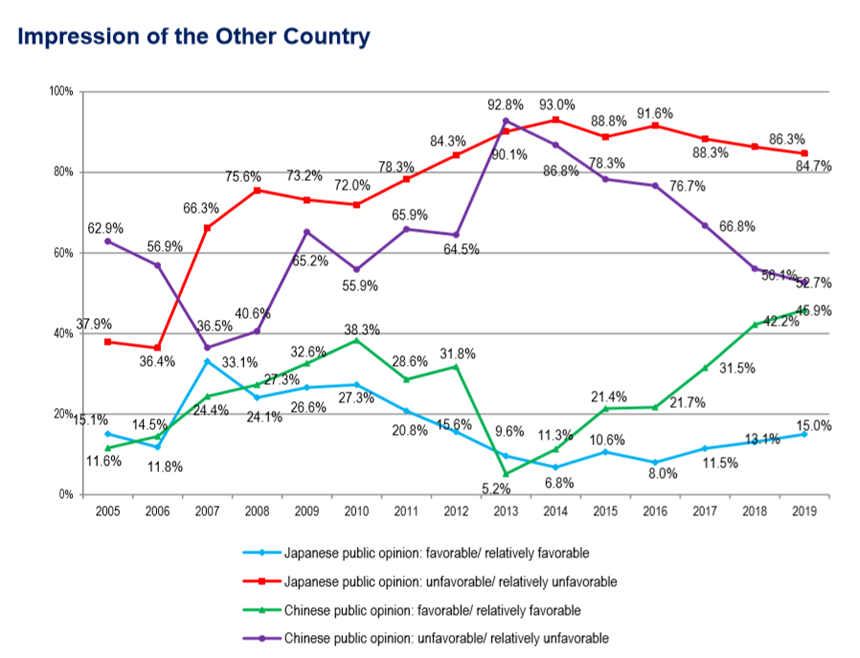

Direct interaction and diversification of information sources brought change in Chinese people's impressions of Japan
Before discussing the agenda, we had better explain the main factors that affect people's opinions. Perceptions and understanding of another country come from direct contact such as visits to the country and personal communication. Those who do not have such opportunities have no choice but to rely on indirect information provided by their domestic media. While this is a common basic process of molding public opinion, it is particularly true for the formation of distinctive public opinion in Japan and China in recent years.
Why did Chinese people's perceptions of Japan change so dramatically in the past few years? The Chinese government acknowledges that a breakthrough came from a sharp rise in the number of Chinese tourists to Japan, and young people's use of Social Network Services and other information apps.
In 2018, 8.38 million Chinese visited Japan, a 6.4-fold jump from 2013. The situation was confirmed in our opinion poll. The number of Chinese tourists to Japan has constantly risen in our survey since 2012. In the latest survey, 20.2% of the respondents said they had visited Japan. More than half of those visits, 56.5%, occurred between 2015 and 2017.
As we mentioned earlier, 45.9% of the Chinese said they had favorable impressions of Japan. Interestingly, 74.3% of these people gave a favorable assessment to Japan, compared with 37.2% among those who had never visited the country.
There is another trend related to information sources. Chinese public opinion shows that young people have more favorable impressions of Japan. The information sources people rely on for learning about Japan differ from generation to generation, our survey confirmed.
In China, an overwhelming majority of people in their 40s and older rely on television as an information source, while people in their 30s and younger seek information through information apps and information sites on their cellphones rather than relying on television.

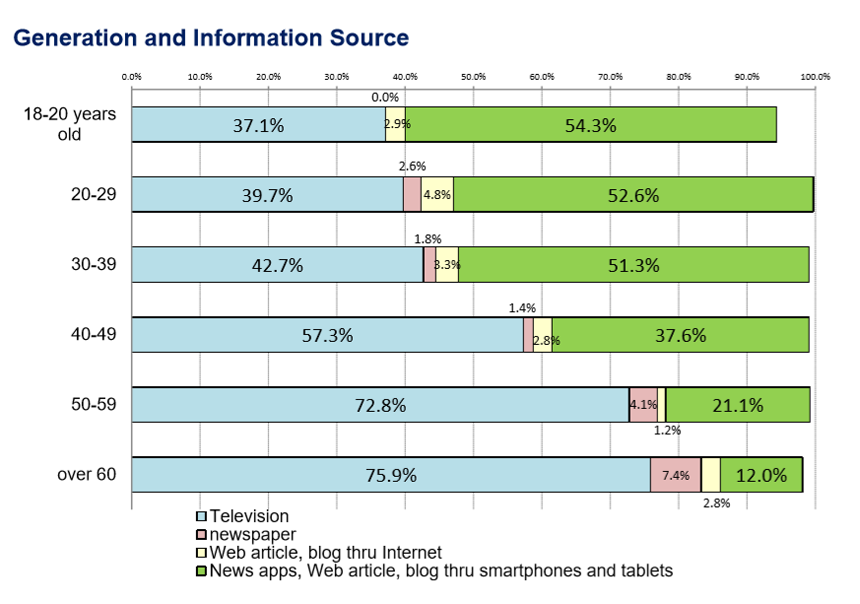
Media reports helped Japanese to mold negative views of China
Considering the structure of public opinion would help us to understand why an increasing number of Japanese think Japan-China relations have worsened and what is behind the change.
In September, when the poll was conducted, Japanese television news featured stories on the U.S.-China economic conflict almost every day.
Even though the Japanese government started to strengthen ties with China, accelerating exchanges among both countries' leaders, the purpose and vision were not explained to the Japanese people. And, the Japanese government appeared to stay silent about the protests in Hong Kong.
In the last survey, nearly half the Japanese responded that "Because of deepening economic conflict between the United States and China, the future of the global economic order has become unfathomable" and nearly 30% replied that they feel "(the U.S.-China economic conflict) could split the world in half."
Many Japanese who receive information only through television feel anxiety about this difficult situation and are strongly aware of the presence of China, a country with a completely different political system from Japan that has grown into a major player on the world stage to compete with the United States.
Our survey found 43.6% of the Japanese believed "Beijing and Tokyo have not yet built mutual political confidence." The Japanese government is responsible for not telling the people about its efforts despite the fact it has been working hard for better relations with China.
Desired modality of new Japan-China cooperative relationship remains unclear
In the latest survey, we asked for views on whether Japan and China should establish a stronger, new cooperative relationship. As many as 52.5% of Japanese respondents considered it necessary, as did 62.2% of the Chinese.
Nonetheless, people in both countries have yet to draw a concrete image of the much-desired new cooperative relations between the two countries. Asked for reasons why the bilateral relationship is "important," the most cited reason was "Japan/China is an important trade partner as the world's second (or third) economic power" (56.8% from Japanese respondents and 59.3% from Chinese).
The second popular reason cited by Chinese was "Japan and China are neighboring countries" (57.8%). The finding indicates that both nations hold overtly general views as regards the importance of bilateral relations. For instance, to the same multiple-choice question, 53.8% of the Japanese selected "Sino-Japanese cooperation is necessary for Asia's peace and development" as the second-most popular answer, but only 27.2% of the Chinese chose the same answer.
In light of the deepening confrontation between the United States and China, China is struggling to build a stronger cooperative relationship with Japan, while Japan is out to heal divisions in the world order. Naturally, stronger cooperative relations serve as mutual interests for Japan and China. Chinese voices in favor of cooperation with Japan seem to be stronger than Japanese ones, apparently because of the hardships the country continues to suffer due to the intensification of the Sino-U.S. conflict.
The absence of a concrete image of a new cooperative relationship among the peoples of Japan and China is primarily attributable to the fact that full-fledged dialogue and consultations on this issue have yet to be started either between the two governments or in the private sector.
But the findings of the latest poll have brought to the fore a slight change in the attitude of both nations, the signs are that they are a little closer to a turnaround from just empty slogans. For instance, 63.5% of Japanese respondents and 69.3% of Chinese said they agree or relatively agree to the strengthening of Japan-China bilateral cooperation in addressing issues of mutual interest and challenges in Asia.
Asked to name any specific tasks that both countries should cooperate to address, more than 40% of Japanese respondents chose four tasks - the issue of North Korea's nuclear development, establishment of a peaceful order in Northeast Asia, environmental issues and food safety. At the same time, the number of tasks cited by more than 20% of Chinese respondents as potential areas for bilateral cooperation has increased to six, including North Korea's nuclear issue, and trade and investment.
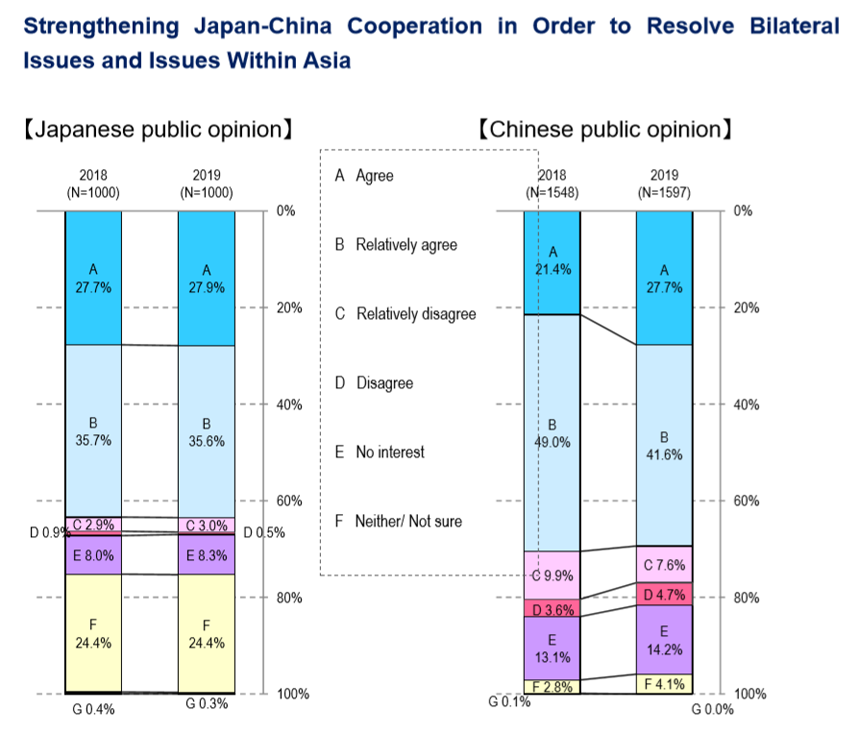
Meanwhile, 50% of Japanese respondents and 65.7% of Chinese considered it necessary to build a multilateral framework for consultations in order to ensure sustainable security in tension-ridden Northeast Asia. To another question, 39.6% of Chinese respondents favor China's participation in the Japan-led Trans-Pacific Partnership trade agreement, dubbed TPP11, as the most cited answer as regards the framework for free trade and economic partnership both countries should pursue. Only 29.2 percent cited bilateral cooperation for the promotion of China's "One Belt, One Road" initiative, down from 43.7% in the survey in 2018.
Conspicuous changes seen in Chinese public opinion toward Japan
The latest survey shows some conspicuous and interesting changes in the general attitude of Chinese people toward Japan. In sum, the opinion of China's general public toward Japan has been improving remarkably.
As mentioned above, the improvement is attributable to the increase in the number of Chinese visitors to Japan and the diversification of sources of information on Japan. In addition, I should add the Chinese government's determination to "manage" the confrontation with Japan and to move for cooperative relations. Apparently, such a policy is being thoroughly implemented domestically in China. This change is evidenced by the fact that 20.4% of Chinese respondents to the latest survey cited "entrenched nationalism and anti-Japan sentiment on the part of the Chinese people" as an obstacle to the development of Japan-China relations. The corresponding figure was a small 5.4% in the previous year's survey.
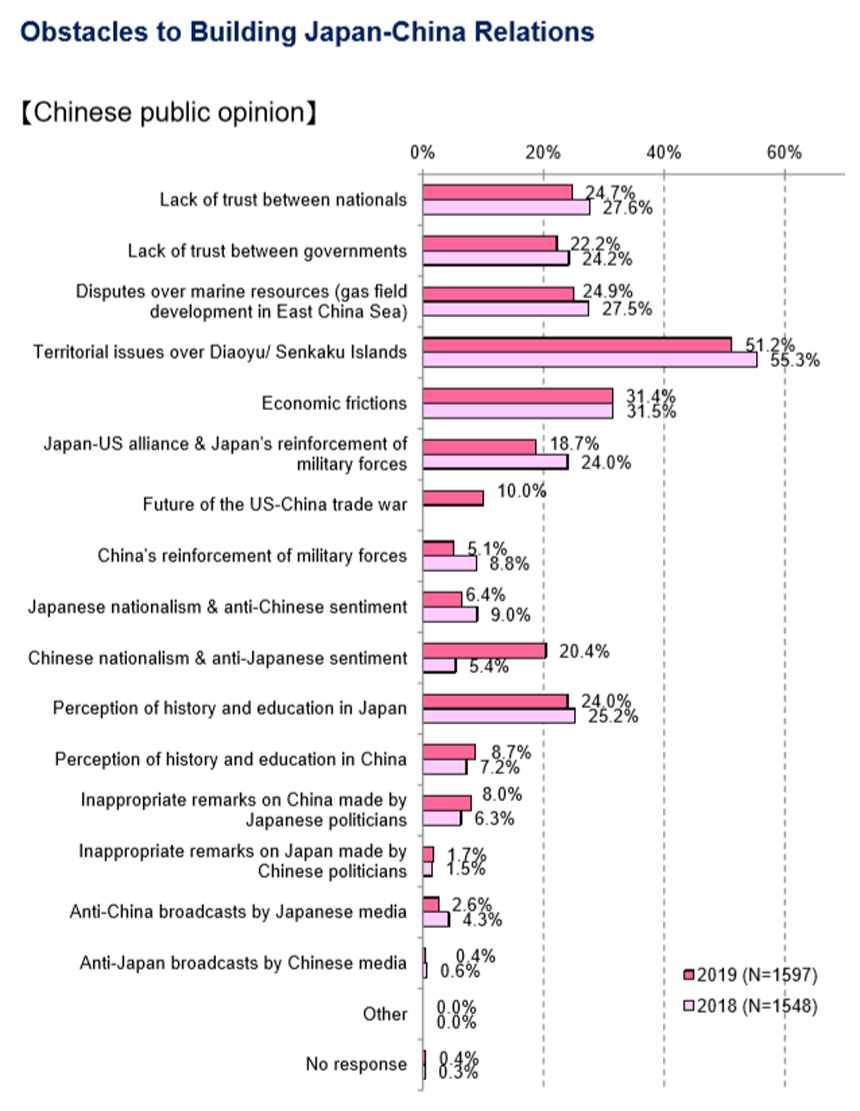
A noticeable change is also found in the Chinese people's understanding of Japan's social and political systems. In last year's survey, nearly 40 percent of Chinese respondents said they recognize Japan as a "hegemonistic" country. The corresponding percentage more than halved to 18.5% over the past one year. Likewise, those in China who view Japan as a "great-power chauvinist" amounted to 12.1% last year, but the percentage halved to 5.8% this year. In the latest survey, however, the most common image of Japan held by Chinese respondents is "capitalist" (32.3%), followed by "militarist" (32%) and "nationalist" (23.6%). Like it or not, this is the Chinese public's new image of Japan.
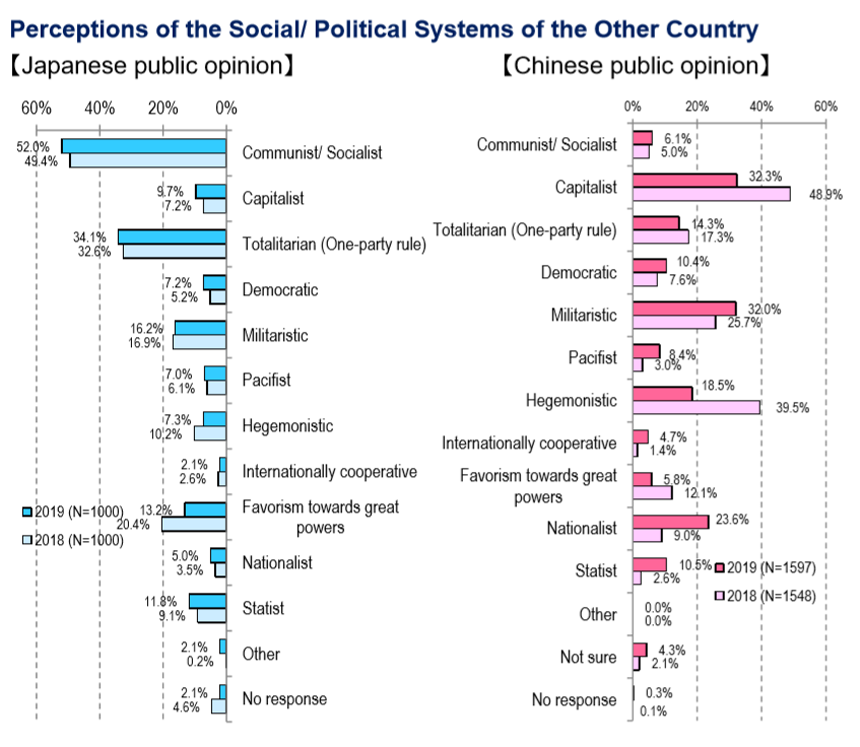
Under ordinary circumstances, such a drastic change in the perception of the other country could not have been made in such a short period of time and without the occurrence of an event or incident. But in China, it was made possible. In the meantime, 80.4% of Chinese respondents feel that their domestic media outlets are contributing to the improvement of Japan-China relations significantly or slightly, and 80.4% consider their coverage of Japan as "objective" and "fair." However, the corresponding figures in Japan are only 26.9% and 14.9%, respectively.
In the realm of Japan-China relations, summit diplomacy entails symbolic significance. Its importance is evidenced by the fact that both governments agree on all-important political documents by capitalizing on the Chinese head of state's official visit to Japan. For China, President Xi Jinping's planned visit to Japan next spring will be a politically decisive event and Chinese public opinion is seen being encouraged to celebrate the event. In contrast to China, the interest of the Japanese public in Prime Minister Shinzo Abe's planned visit to Beijing in December this year and the Chinese president's visit to Tokyo is low.
High time to set the goal for Asia's future and the desired modality of Japan-China cooperation
In conclusion, the latest survey shows some contrasting gaps in the perceptions of Japanese and Chinese nationals on many issues, indicating that the current status is seen as being in the process of change.
Amid the deepening confrontation between the United States and China, the basic structure of international relations is subject to major shifts. In Asia, the prospects remain poor for the formation of sustainable peace, and for economic cooperation and development. Under such circumstances, many people in Japan and China are mindful of the significance of creating a new shape for bilateral cooperation. The latest survey has brought to light their efforts to desperately look for answers and these efforts have the potential to elevate both countries to new heights.
The Japanese and Chinese understand the importance of rule-based free trade, a liberal economic order and multilateralism, and strongly support reform of the World Trade Organization (WTO). As the ideal and goals that should be pursued and realized in Asia, some 40% of Japanese and Chinese respondents share the significance of peace and economic cooperation/development.

The vision of what kind of a relationship this will be has yet to be visualized and it has been impossible to gain the public's understanding because the task is not on the agenda at a government-to-government level. The speed of ongoing change combines with the delay in the response from the governments to generate the contrasting mind-set between the peoples of both countries. In order to change the national mind-sets in Japan and China, we are about to initiate proactive dialogue.
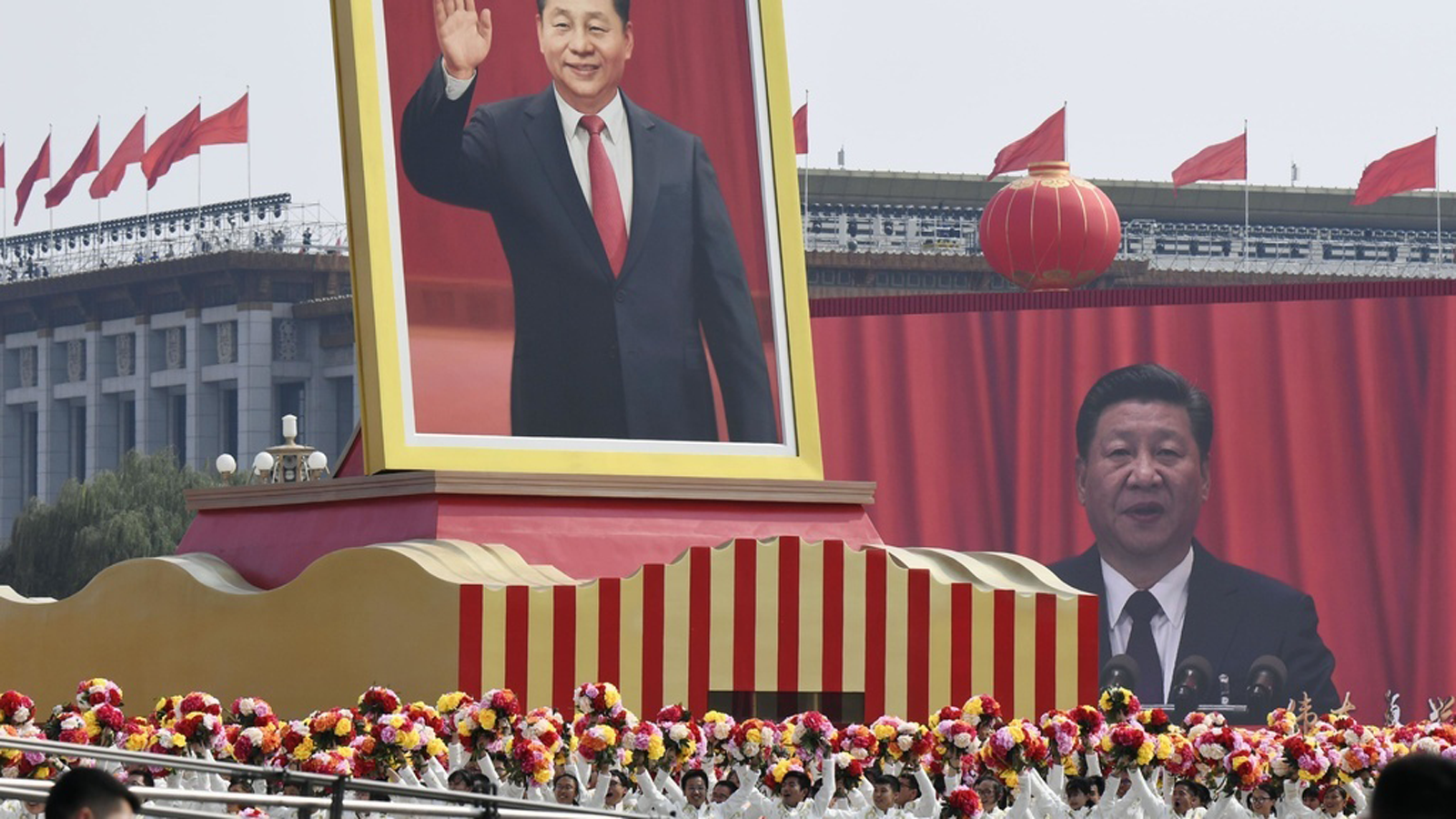
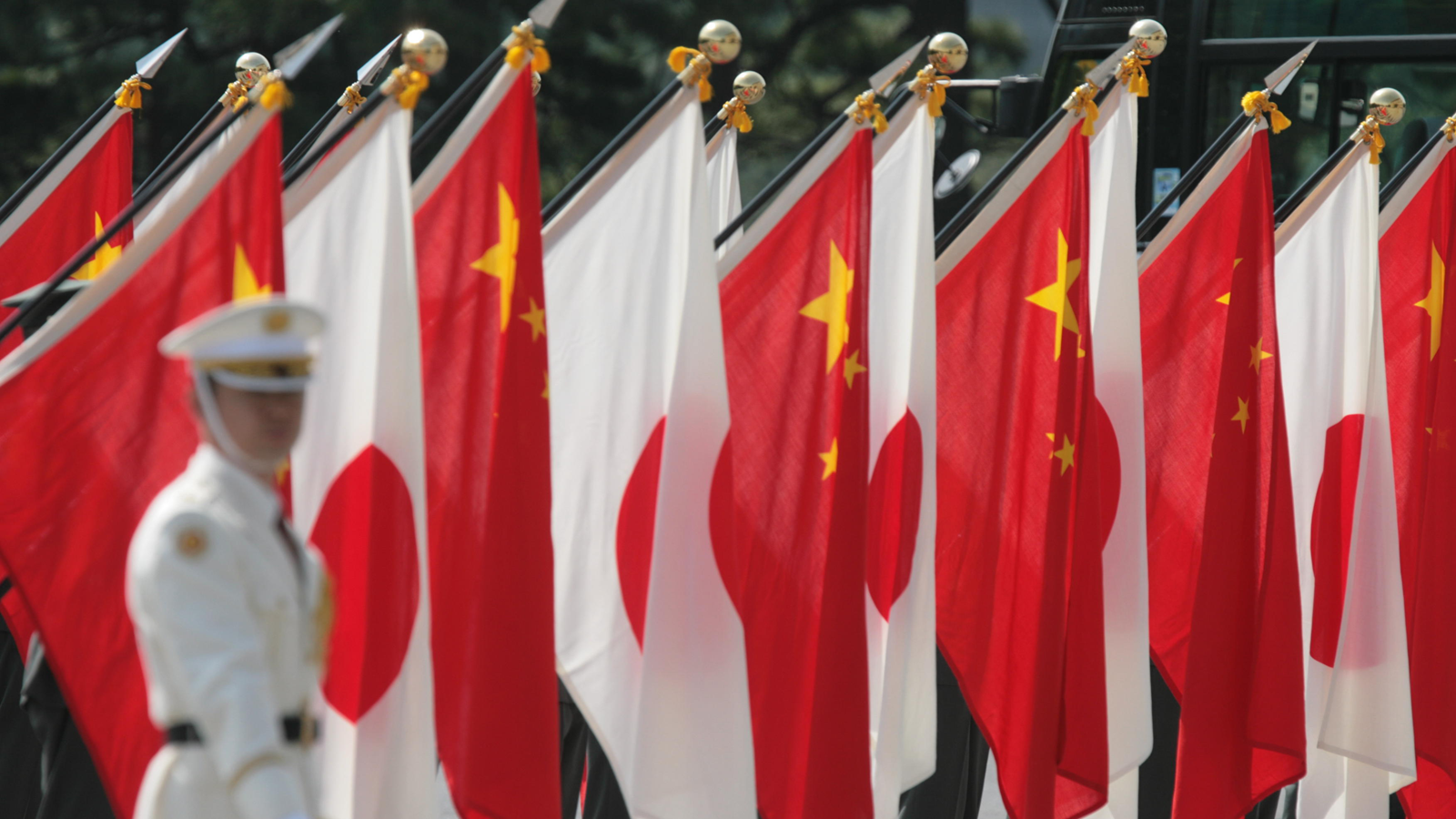
Post a comment